MERCIER PRESS
3B Oak House, Bessboro Rd
Blackrock, Cork, Ireland.

www.mercierpress.ie

http://twitter.com/IrishPublisher

http://www.facebook.com/mercier.press
Estate of Peadar ODonnell, 2013
ISBN: 978 1 78117 169 1
Epub ISBN: 978 1 78117 225 4
Mobi ISBN: 978 1 78117 226 1
This eBook is copyright material and must not be copied, reproduced, transferred, distributed, leased, licensed or publicly performed or used in any way except as specifically permitted in writing by the publishers, as allowed under the terms and conditions under which it was purchased or as strictly permitted by applicable copyright law. Any unauthorised distribution or use of this text may be a direct infringement of the authors and publishers rights and those responsible may be liable in law accordingly.
All characters and events in this book are entirely fictional. Any resemblance to any person, living or dead, which may occur inadvertently, is completely unintentional.
INTRODUCTION
The one among the national leaders of the period of armed defence of the Republic against the Treatyite forces who will grow in influence and stature with the years was Liam Mellows. The Gates Flew Open will be reprinted, from time to time, because I was there when Liam was murdered, and this book gives glimpses of him in prison up to the very last night.
I have been tempted to include in this foreword the account, by one who was present at the cabinet meeting, which set out what passed there, from the first stunned silence that met the proposal that Dick Barrett, Joe McKelvey, Liam Mellows and Rory OConnor be shot, through the tough resistance of certain ministers, down to the final silence that let the proposal through. Few among those who were senior officers in the IRA at the time would go wrong in naming who made the proposal, but I doubt very much if anyone among them would be right, even fifth guess, in naming who raised the first voice in support of it. If I resist the temptation it is simply because I think it is no longer of any importance who took what side in that period; that the interest should shift towards the study of the play of social forces that went into the making of the crisis of the Treaty. Mellows Notes from Mountjoy Jail are an introduction to that study. Therein, largely, lies his immortality.
When The Gates Flew Open was first published, the aspect of it that won it readers and provoked resentment was its statement of the conflict between the prisoners and prison chaplains, a conflict deriving from the infamous Joint Pastoral of the Irish Catholic Hierarchy of 1922. Strangely enough, I was among those who resisted, in those bitter days, the view that our Catholicism was legitimately at the disposal of the conservatives. I have not the slightest doubt but that had the view established itself among us that the role of our bishops proceeded, as of necessity, from our religion, most of us would have ceased to look on ourselves as Catholics. It just happened that we lumped their Lordships in with the reactionary middle class and their allies, the feudal remnant who came bawling out now from behind the demesne walls in whose shelter they had sulked all through the independence struggle, to support the Treaty, not for the measure of political freedom it gave, but for the fetters it imposed. We cursed the bishops heartily, but we waited for them to return to their job of serving the people, in humility, instead of trying to boss them, in arrogance. The Gates Flew Open is an illustration of how free-minded Catholics can be, in a good cause, in the face of unscrupulous and very terrible clerical reaction. It teaches a lesson of great value, within and without Ireland.
We who took the Republican side in 1922 did not distinguish ourselves in the way we served a great cause, but in the division of the national forces of the time we were the custodians of the tradition of struggle.
Irelands hope of independence still rests on that large and respectable section of the people, the men of no property. That hope may have to wait for realisation on a great thaw in Belfast that will release the working-class population there from their bigotry and their backwardness. Mellows was the greatest apostle of the creed of Tone in our day. He had the honour to be its martyr. His martyrdom enriches that creed and casts a glow over the names of all those who went the same proud way as he in its service.
CHAPTER 1
When the cell door banged shut with a short thick-set thud, my mind went dark; I felt buried; I was as full of panic as a child, who, searching nervously in the distant corner of a barn at night-time, is trapped by a gust of wind which slams the door and puts out the candle; it was as bad as that. I was on the floor, for I had been catapulted in by the jailers, and the darkness within was smothering me. Did you ever crouch on a helm when there was no sky and the squalls were heavy with blackness and the roar of surf, and there was no air thin enough to breathe? It was worse than that, for a boat is a companion. Steady, girl, you say, as she shies dangerously from a blast, and she is a-tremble with a tremor that invades your arm on the tiller and sweeps through your whole body in exciting companionship; a boat is a pal even when she leaps into a topper and drowns herself. But there was no companionship in this cell; I had never felt so unutterably alone.
It is a trick of mine to search new fears with old ones, and now the jailers were not quite gone from the door when I was asking of myself sharply whether I had not lived through something as bad as this. My mind grabbed feverishly at the darkness and alarm of a few frantic minutes in a Scotch coal mine and I drew that early alarm right across my soul. I have never seen oil poured on breakers to give them a skin and save a ship from being smothered, but I know what it is to empty the oil of an absorbed experience on the rage and hiss of one in boil. I sat up slowly and twisted round to face the strip of window. I was in jail; just in jail.
Now, I did not wish to say that either; not just yet. I was being very childish, but the power to seek refuge in mere childishness is a trick well worth preserving. I used to rid myself of a sore toe long ago with the excitement I could build up sailing boats in a bath of water and imagining adventures in the world that was behind the islands that guarded our bay. And what I wanted now was a book. I could squeeze a trickle of interest out of any jabber of words and sponge myself cool. A book, any book.
I jumped to my feet. I saw a knob and I pulled it and a bell rang. I pulled and pulled and filled the jail with the jingle of a bell. A disc moved aside and a face came in front of the little circle of glass in the spy-hole; a dull face with a pale sheen of enquiry on it; I was perhaps the first of the new prisoners to ring a bell. Get me a book please, I said. I was very close to that face and I saw it sour suddenly. It was gone in a second, but that sudden souring hung around the spy-hole like a bad smell. I whirled round and shuffled through the cell in an aimless wander like a sick dog. I halted at the bell and my hand went out to it again, but I didnt pull. I emerged from my daze sufficiently to gaze around me and view the cell against the texture of my excited mind; how I loathed it. The walls, hateful; the door, a horror; the torn mattress, filth; the thick, yellow, dirty panes of glass, a diseased condition of light. I turned to the door and kicked it, but the door was a stupid dull-toned thing and I got no value out of the kick. I have often kicked cell doors, but I could never feel that I was getting value for my own hurt toes.


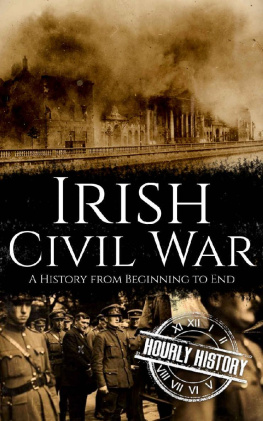
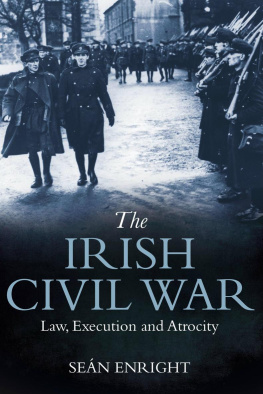
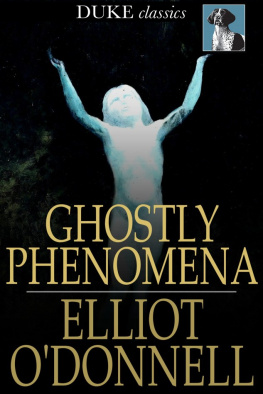
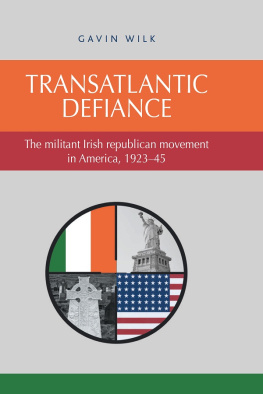
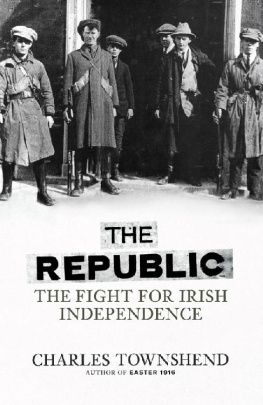

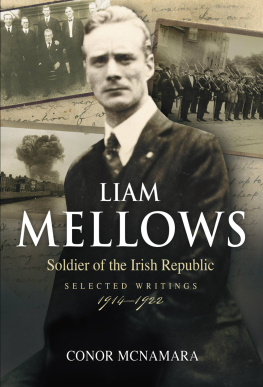


 www.mercierpress.ie
www.mercierpress.ie http://twitter.com/IrishPublisher
http://twitter.com/IrishPublisher http://www.facebook.com/mercier.press
http://www.facebook.com/mercier.press